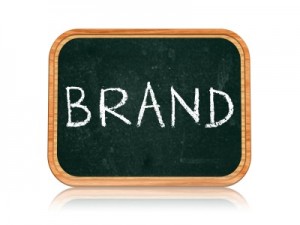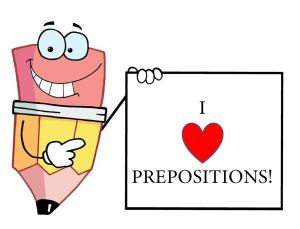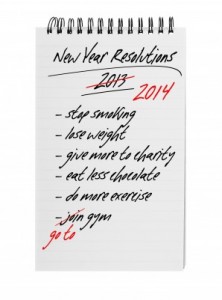Nothing like a headline–that looks like the front page headline–that doesn’t make any sense at all.
I was recently invited to be a guest on The Paralegal Voice podcast on the Legal Talk Network. Here is the promotional information about that interview and a link to the actual podcast:
Paralegal Proofreading Tips Podcast
Kathy Albrecht Sieckman, PP, PLS, ACP was invited to be a guest on The Paralegal Voice. Hosted by Paralegal Mentor Vicki Voisin, the Legal Talk Network program discusses industry-relevant topics with leading professionals to cultivate paralegal-career development and success. Kathy was invited to discuss accurate proofreading catered specifically to paralegals and legal support staff.
Listen here: Paralegal Proofreading Tips
“I know proofreading is important to you,” Voisin said, “and I’d like to know what event lead to your becoming an expert on proofreading for legal professionals.” Studying for Sieckman’s certification exam, she became attuned to the plethora of grammatical errors that can vitiate legal documents. “Now I notice things in newspapers, billboards, and the local news,” Sieckman said, “I’m actually surprised how much local news has errors.” She has a Grammar Giggles section in her blog where she posts blatant errors, such as a “Parent Dorp Off” sign outside of an elementary school.
“Proofreading is difficult. Sometimes people expect things to be right,” Voisin said, which can cause them to graze over errors. So tell us why proofreading is so important in your daily life and as a paralegal, she asked. “Attorneys have read their work so many times, they know what it’s supposed to say,” Sieckman explained, “which isn’t necessarily what shows up on paper.” Again, this is another reason authors tend to graze over errors and the reality is, “judges really don’t have time to read error-filled documents,” Sieckman said. Additionally, no paralegal wants to be responsible for a document permeated with typos. “No, you don’t want your document, or motion, to be thrown out by the judge,” Voisin agreed.
So what issues do you frequently see? she asked, and how do you eradicate them? “Everything has to be accurate,” Sieckman began, “or it can completely change your case . . .”
Tune in to Paralegal Proofreading Tips to hear Voisin and Sieckman cover common errors and solutions to proofreading for paralegals.
 For some reason, I’ve been seeing this issue a lot lately–the comma with the word “and.” A basic rule with commas is their use to set off nonessential phrases. Unfortunately, for some reason, people think that a comma always belongs before the word “and.” Note this example:
For some reason, I’ve been seeing this issue a lot lately–the comma with the word “and.” A basic rule with commas is their use to set off nonessential phrases. Unfortunately, for some reason, people think that a comma always belongs before the word “and.” Note this example:
Do you see the problem? When you take out the nonessential phrase set off by commas “and ultimately,” the sentence doesn’t make sense:
So in reality “and ultimately” is NOT a nonessential phrase, only “ultimately” is:
Thus, the commas should be around the word “ultimately” ONLY.
Here is another example:
Again, if you take out what appears to be the nonessential phrase because it is set off by commas, it doesn’t make sense:
So the true intent was to set off “if so” as the nonessential phrase:
The correct use of commas should be:
The best check while proofreading is to read the sentence without the “nonessential” phrase to see if it is truly nonessential. That should be your clue as to whether commas are needed and, if so, where they should be correctly placed.
 In listening to one of my favorite podcasts (Stop! … Grammar Time*) on the way to work recently, one of the topics was products that are a brand name and should be capitalized even though generic products are commonly called by the brand name. There are many of them. Here are a few:
In listening to one of my favorite podcasts (Stop! … Grammar Time*) on the way to work recently, one of the topics was products that are a brand name and should be capitalized even though generic products are commonly called by the brand name. There are many of them. Here are a few:
Adobe – brand name of PDF program, even though some people say “Adobe” when they are referring to a PDF
Astroturf – brand of artificial grass
Band-Aid – brand of bandage
Boogie board – Boogie is a tradename for body board
BOOKS ON TAPE -brand name for audiobooks
Breathalyzer -brand name for breath alcohol testing equipment
Bubble Wrap – brand name for cushioning product for shipping
Champagne – sparkling wine that comes from the Champagne region of France. Sparkling wine from anywhere other than the Champagne region of France cannot be called “Champagne” but must be called “sparkling wine.”
Clicker – brand name of garage door opener
Clorox – brand name of bleach
Coke – brand name for cola flavored soda – short for Coca Cola
Disposall – brand name for garbage disposer in the sink
Dixie cup – Dixie is brand name for disposable cup
Dumpster – trademarked brand name for type of trash bin
Frisbee – trade name for flying disc toy
Jacuzzi – brand name of hot tub
Jet Ski – brand name for personal watercraft
Karo – brand name of corn syrup
Kitty Litter – brand name of cat box filler
Kleenex – brand name of tissue
La-Z-Boy – brand name of recliner
Levi’s – brand name of denim pants
Mace – brand name of pepper spray
Magic Marker – brand name of permanent marker
Plexiglass – brand name of acrylic sheet
Popsicle – brand name of frozen ice pop
Post-it – brand name of sticky notes
Q-tips – brand name of cotton swab
Rolodex – brand name of contact card system
Scotch Tape – brand name of invisible tape
Seeing Eye dog – name of organization that trains dogs for use by blind people
SHEETROCK – brand name of gypsum panel
Solo cup – Solo is brand name of disposal cup
Styrofoam – brand name of plastic foam
Super Glue – brand name of permanent adhesive
Tabasco – brand name of hot pepper sauce
Taser – brand name of stun gun
Vaseline – brand name of petroleum jelly products
Velcro – brand name of hook and loop fastener
WD-40 – brand name of rust-prevention solvents and degreasers
Windbreaker – brand name of wind resistant sports jacket
Windex – brand name of window cleaner
Wite-Out – brand name of correction fluid
Xerox – brand name of copier equipment
Yellow Pages – brand name of telephone directory advertising section
Ziploc – brand name of reusable, re-sealable zipper storage bag
These brand names should be used only when talking about that specific brand and should then be properly capitalized.
*Note that “Stop . . . Grammar Time” contains language that might be offensive to some but is still a very informative podcast.
This was on our local news station and is from a school district on the far west side of the Valley. I understand that this is a simple mistake with a stencil, but it’s a four letter word and shouldn’t be that difficult. Having that kind of mistake in front of a school only makes it worse. Spelling is important!

According to the Gregg Reference Manual, ending a sentence with a preposition is not always wrong–regardless of what your high school English teacher told you. It will depend on whether you are writing in informal or formal style. In a law firm, we are usually writing in a formal style, so sentences should not end in a preposition.
Sometimes when you try not to end a sentence with a preposition, you can end up with an awkward sentence.
Also be careful because sometimes the object of a preposition at the end of a sentence is not expressed.
You may be familiar with Sir Winston Churchill’s complaint to an editor who tried to discourage him from ending his sentences with prepositions, which has become one of the greatest examples of the hazards of NOT putting a preposition at the end of a sentence: “This is the sort of English up with which I will not put.”
The basic rule for ending sentences with a preposition is to use good sense. It is not completely taboo, but use your judgment for when it is appropriate.
From Twitter. In honor of back to school time, here is another example of higher education proofreading problems. In my book, schools have a special standard with respect to English usage and grammar and THIS is not it. Perhaps they should focus more on academics and less on extracurricular activities. Oh well, off my soapbox. This picture shows how easy it is to confuse words that sound similar but don’t mean the same thing and proves that it never hurts to have someone else review important work.

Image credit: goldfinch4ever / 123RF Stock Photo
I have a friend who has long argued that “first annual” is incorrect. I decided to research it and the consensus is that although the topic is conveniently left out of most grammar guides, the first time you have an event is the “inaugural” event, even if you intend to hold the event every year. The AP Stylebook does state: “An event cannot be described as annual until it had been held in at least two successive years.” Once you hold the event for the second year, then it can be called the “second annual” event. So Ed is half right. The first event is the “inaugural” event and the second yearly event is the “second annual” event. He would argue that the second yearly event is the first annual since it is the first anniversary of the event so it should be the first annual. The research (and I) tend to disagree because it is the second yearly event, making it the second annual. Each successive annual event would then be called the third annual, fourth annual, etc.